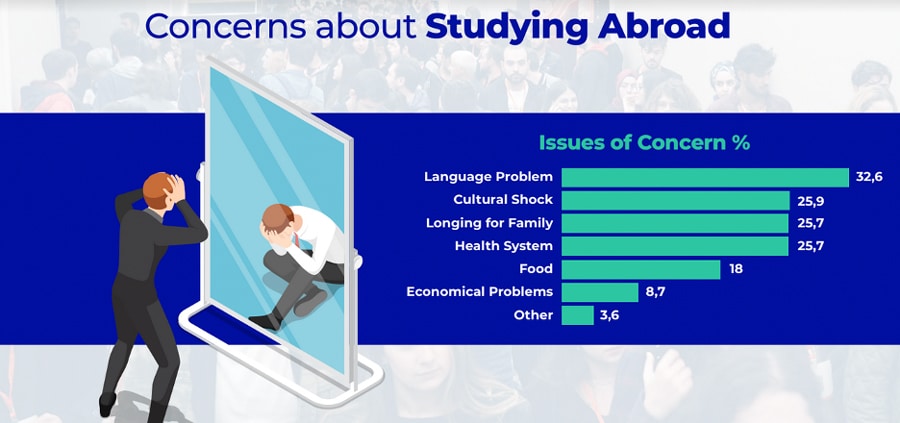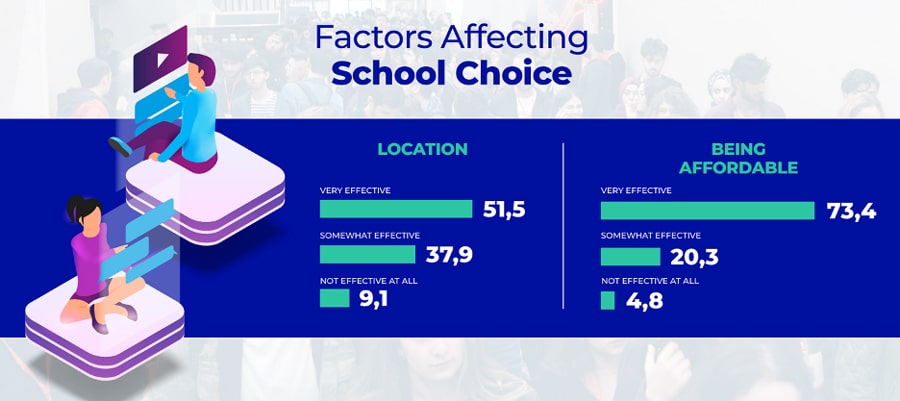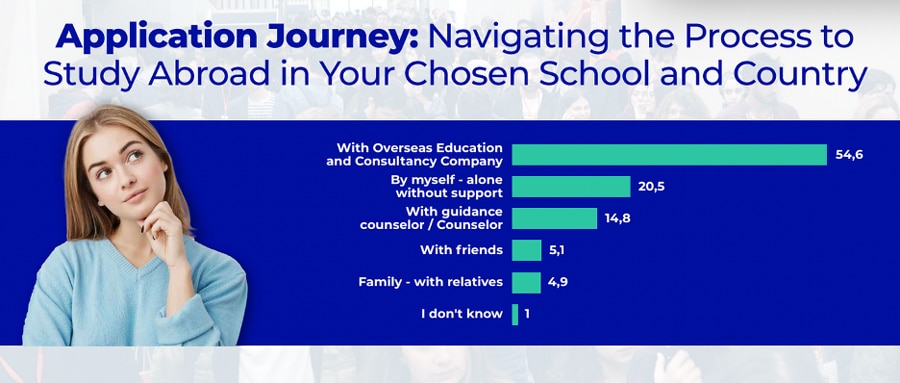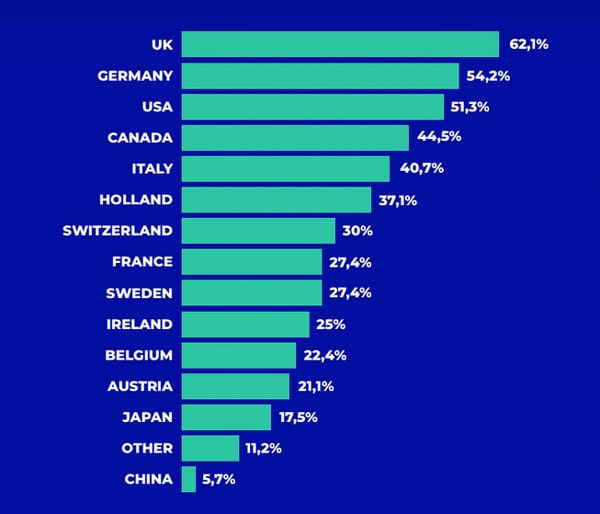Survey finds interest in study abroad remains high in Türkiye despite economic headwinds
- More than 50,000 Turkish students study abroad at the tertiary level each year and thousands more opt for language study and K-12 education outside of
- A new survey finds demand for study abroad alive and well in Türkiye – but the country’s perilous economy is a significant issue for many families
Results from a new survey that went out online to more than 1,000 Turks between the ages of 16 and 35 reveals that 88% would consider studying abroad – despite significant barriers related to the inflation rate in their country and their currency’s weakness: Euronews.com reported earlier in March that the Turkish currency “has lost 40% of its value against the dollar in the past year, and 82.6% in the last five years.”
The respondents surveyed by a2 International Education Fairs were from all over Türkiye and had completed a various amount of education, from high school through university.
Students see study abroad as helpful for a good career, but financial issues are a barrier
The main motivation for those considering study abroad is paving the way to a good career (67%), followed by personal improvement (64%), and meeting people from different cultures (58%).
For those who aren’t considering study abroad, the main reason is a “budget problem.” Türkiye’s economy has been in turmoil for some time now and this has dampened outbound student flows from the country. The Turkish Statistical Institute announced that the annual inflation rate reached 67% in February, higher than what had been forecast.

Language proficiency is a worry
The biggest concern in general among students is around language proficiency issues; English proficiency is quite low in Türkiye – the EF Index rates Turkey the 33rd lowest of 34 European countries.

Many students are looking at months rather than weeks abroad
Of students looking at language education abroad, the largest proportion (28%) is interested in studying for 48 weeks or more, followed by 24–48 weeks (21%), 12–24 weeks (15%), and 6–12 weeks (21%). Less than 15% are interested in a shorter time away for language study.
Quality of education trumps all, but work opportunities are high on the list of priorities
The priorities for study abroad are quality of education (77%) and post-study work opportunities (62%). Students find the most important factors influencing their decision to be affordability (73%) and the ability to work while studying (65% “very effective”). Also influential is location (51.5% “very effective”) and the ease of getting a visa (46%).

Students see themselves as key researchers and decisionmakers
When deciding which country to study in and which institution(s) to apply to, students are most likely to use overseas education companies (35%), followed by social media (31%) and fairs centred on study abroad. They are also most likely to rely on an overseas education company/consultancy when navigating the process of getting ready to study abroad. But Turkish students are also very likely to trust their own research – and 88% said they are the key individuals deciding where and what they will study abroad, versus less than 10% who said their parents are the ultimate decision-makers.
Most students apply within 15 months of beginning their research: 15% applied within 5 months, 17% applied between 6–10 months, and 19% applied between 11-15 months.

Many aspire to study in the UK
The most preferred destinations are currently the UK (62%), Germany (54%), US (51%), Canada (44.5%), and Italy (41%). That the UK was selected more often than the other destinations is interesting given that it is less affordable than many destinations and enrols fewer Turkish students than Germany or the US.

For more information on the context within which Turkish students are making study abroad decisions, please see our recent market snapshot on Türkiye.
For additional background, please see:
- Get first-hand market insights and connect with agents from Türkiye and throughout the region at ICEF Eurasia
















